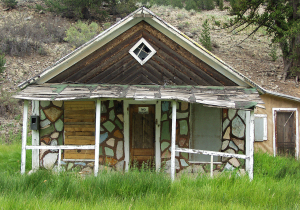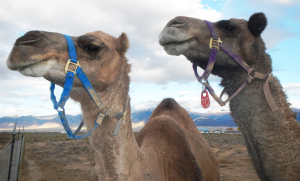by Martha Quillen
In The Lucifer Effect: Understanding How Good People Turn Evil, Stanford professor Philip Zimbardo illustrates how ordinary people can be incited into acts of almost unimaginable violence. “The process begins,” he warns, “with creating stereotyped conceptions of the other, dehumanized perception of the other, the other as worthless, the other as all-powerful, the other as demonic … With public fear notched up and the enemy threat imminent, reasonable people act irrationally, independent people act in mindless conformity, and peaceful people act as warriors.”
Zimbardo points out: “We live in the mass murder century. More than 50 million people have been systematically murdered by government decrees, enacted by soldiers and civilian forces willing to carry out the kill orders.”
And he goes on to tell about the Hutus rising up against the peaceful Tutsi people, intent on genocide accompanied by rape, torture, dismemberment, mutilation and the systematic murder of children, which is not unlike what happened at Sand Creek one hundred years ago this November, when a Colorado militia wiped out a Cheyenne camp occupied mainly by women, children and the elderly.
I can’t imagine anything like that happening today. In fact, it’s hard to imagine school shootings, terrorist attacks or even shoving matches breaking out in Central Colorado.
Yet the first steps toward embracing that evil Zimbardo warns us about are already in place in Salida and everywhere else in American politics today. People are not talking about the issues any more; they’re talking about what is wrong with their opponents. They are stereotyping and demonizing one another, while dismissing everything their opponents have to say.
When proposals to build a six-million dollar water park and a three-million-dollar hockey rink came up in Salida, I had friends who cheered those projects even though they hoped they’d fail – because it was important, they contended, to stand against those people who don’t know anything and don’t want anything, and will destroy Salida with their parsimony and budget cuts.
And my friends on the other side expressed similar sentiments: Those people are selfish, power-hungry and only care about themselves ….
In the place and era where I grew up, the divisions tended to be racial, and I ended up a lone wolf in that fray because I’d become an impassioned civil rights advocate at the age of 5 or 6. I blame my cousin for that. He was three years older than me and obsessed with making model airplanes. At one point, he started sneaking off to a shop about a half-mile away, across Mack Avenue, where an old black man created gorgeous models of sailing ships (in bottles no less). And my cousin always took me along to further the guise that he was “going to the park.”
If our parents had known about our destination we would have been locked up until adulthood, because that neighborhood was deemed one of the most dangerous in Detroit. And my cousin and I were definitely the only white people I ever saw there. But I loved that place, and I was especially fond of the barber shop next door where women went to get their hair straightened.
A lady there shared her cookies with me, and to make things even better, the customers were as curious about me as I was about them. Before that, nobody had ever been so interested in who my 6-year-old self was or where I’d come from. Or what I had to say.
And that would have remained a pleasant memory about a long-ago summer, if a decade later Detroit hadn’t gone up in flames. At that point my fervent advocacy for the oppressed suddenly struck everyone as freakish. I stood in my uncle’s backyard and watched the smoke billow, while my dad and relatives insisted that martial law should be imposed and all of the black people found out on the streets should be summarily shot.
“But they aren’t all guilty,” I insisted. And besides, these were their shops and stores burning, so of course they would go there.
“What do you know about anything?” my father demanded. “The city is under siege, and we could all be killed.”
I agreed because it was true. But when he demanded that I admit that those people were dangerous and should be shot? I wouldn’t. I suspect I was a little too enamored with the idea of revolution in my teens. And that was the beginning of a whole new era in which my parents often deemed me insubordinate and clueless.
At that point, my notions about religion and politics seemed so different from theirs that I felt as if I’d been born into the wrong family – and so did they. I was too old to spank, so my punishment for being a wannabe freedom fighter was meted out in chores, which my parents felt would be good for me. One summer a friend visited and I was allowed a week’s reprieve, but then the airlines went on strike, so she stayed and my punishment resumed – painting the house, garage and a quarter-mile of break wall – while still completing my regular chores every day. (I feel compelled to admit that I never finished all of that painting.)
“Your parents are so mad at you,” my friend observed. “It’s because you’re a liberal and they’re racist, isn’t it? You know, I’ve never met bigots before. The people here are all such bigots.”
I was furious with her for saying that. It wasn’t true, I thought. Except, of course, it was sort of true, except the people’s fears were somewhat justified. It was merely their cruel response that I objected to. Their actual race relations, however, were far more complex than my friend’s summary implied. In fact, some of the neighborhoods my relatives lived in were turning into war zones.
And so it goes in America. It seemed obvious to me that we should come together, compromise and make peace.
“How naïve can she get?” my parents wondered.
In Salida, I hear accusations about power-mongering, negativity and disrespect, but what I see is people who naturally hold two different viewpoints. As I see it, Salida’s leading problem is the growing financial gap between its citizens. Some residents have lots more money than longtime locals, and they understandably want more amenities. But half of the population already feels beleaguered and tapped out – and they aren’t eager to support facilities that they won’t have the time nor money to use.
This is a common problem, and a national one, which I’m sure we will all be hearing more about in the future. And therein lies the good news. After getting thoroughly depressed by Zimbardo and a story in The Mountain Mail, I watched Robert Reich’s documentary Inequality for All, which blames our modern political upheaval on falling wages and the rising income gap. But, Reich contends, American inequality will eventually have to be addressed because consumer spending accounts for 70 percent of the U.S. economy, and therefore our continued prosperity relies on the majority of citizens having adequate incomes.
In the meantime, I am starting to realize that Salida’s problems are no longer about spending. Or issues. They are now about factions who don’t want to live together, or compromise, or concede anything.
I hate seeing my hometown torn apart, but I think it will be worse if either faction actually prevails. To remain the friendly and vibrant city people move here to live in, Salida needs all of us: the no-nonsense residents who do so much of the basic work, and who worry about budgets and transparency and what’s being lost; and the residents who love the new trails and festivals, and delight in our shops, restaurants, art and music.
I always believed in integration. And whether it’s naïve or not, I still do.
Martha Quillen lives in Salida where all of this business about us versus them, and who’s plotting what against whom, sometimes drives her into that irrational mode Zimbardo describes.



